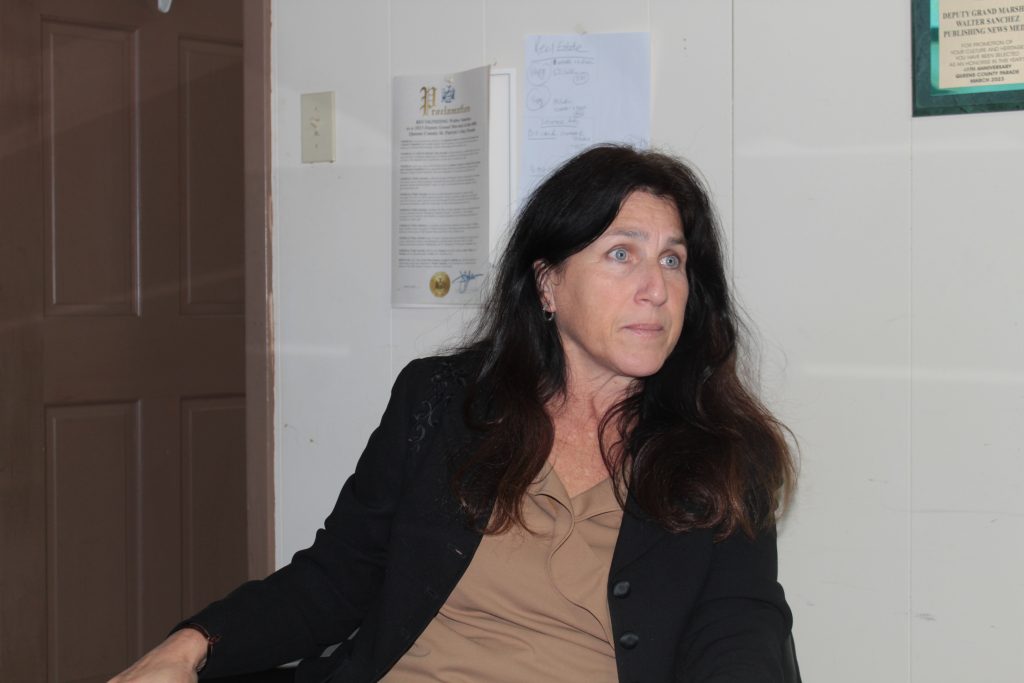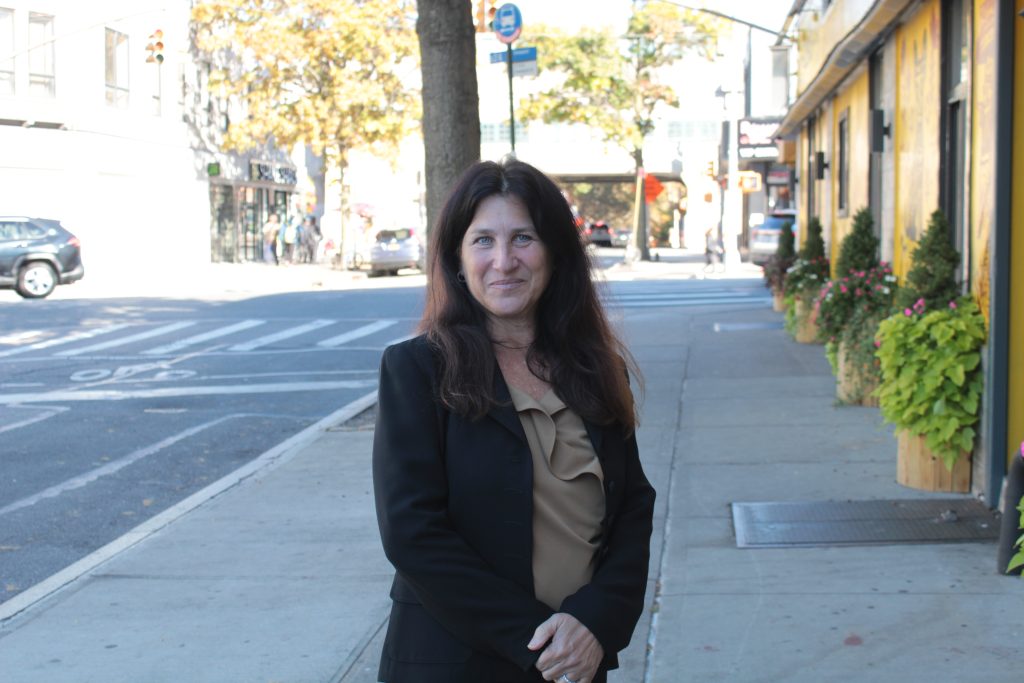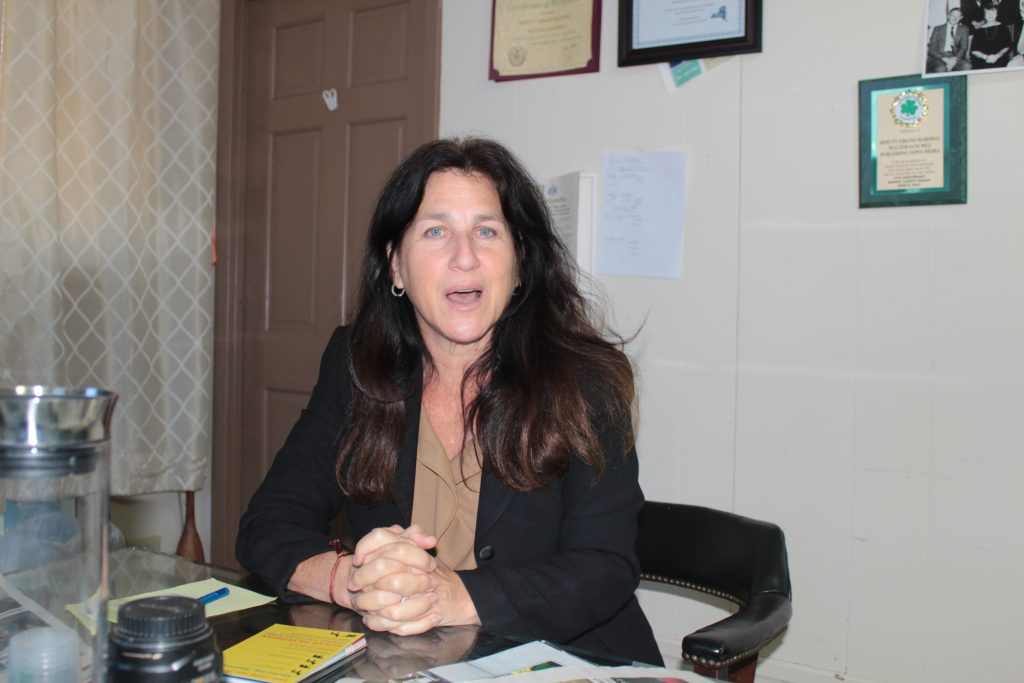
Silverman Brings 40 Years of Legal Experience to Bench Bid
MOHAMED FARGHALY
mfarghaly@queensledger.com
A lifelong Queens resident, Silverman grew up in Bayside, attending PS 154, PS 159, IS 25 and Bayside High School. After completing her undergraduate studies in psychology at the State University of New York at Binghamton in three years, she pursued a law degree at St. John’s University School of Law, following in her father’s footsteps. Since passing the bar in 1987, she has worked primarily in criminal defense, as well as in real estate, and family law including divorce and separation.
Silverman’s campaign for civil court judge is her first run for public office. She is running on the Republican and Conservative lines but emphasizes that political affiliation should not influence voters’ decisions. “I don’t think a judge should be politically based at all,” Silverman said. “A judge has to be impartial, fair, and unbiased, applying the law to the facts. I feel like party lines should not be relevant for voters. I want people to vote because of me and what I can do for the county as a sitting judge.”
Throughout her career, Silverman has observed the court system closely, identifying both its strengths and weaknesses. “Having been in the courts all these years, I see what works and doesn’t work,” she said. She noted inefficiencies in scheduling and clerical processes that can slow the pace of justice, comparing the current system to outdated methods such as signing in on a clipboard. “Judges use screens in trial to reduce the reliance on passing around papers, but the overall experience of going to court is still clunky and drawn out. We need rapid justice, versus the wheels of justice just turning slowly.”

For Silverman, the most essential quality of a judge is the ability to listen. “A judge needs to listen to both sides. How do you find out who’s telling the truth? I want to get it right,” she said. Her approach is rooted in years of practice and observation, including interactions with colleagues, prosecutors, and judges throughout Queens County.
Silverman also highlighted her work with the supervised release program, which is equivalent to “pre-sentence probation”, which provides alternatives to cash bail for defendants who are reliable and pose no threat to public safety. She described the role of these programs in creating a more equitable system for defendants who cannot afford bail. “It’s just to secure they come back. As a judge, I will use my extensive experience to assist me in deciphering who is reliable,” she said.
Her perspective on the evolution of law and justice is informed by her decades-long career. “A lawyer can’t know every statute. You have a book and you can look it up. Your understanding of how to apply the law to the facts, that’s what matters. Judges can be appealed, so you have to get it right,” she said. She described her own professional growth in understanding how to apply statutes fairly, balancing the rights of defendants with the demands of justice.
Silverman discussed her views on judicial efficiency. She suggested that court procedures could benefit from better scheduling and transparency, similar to how the Department of Motor Vehicles manages appointments. “If a judge knows that certain cases will be adjourned, they should knock out all the easy adjournments in the first half hour of the day. Attorneys should be able to see when their case is coming up so they can plan accordingly,” she said.
Despite the challenges she has observed in the legal system, Silverman remains optimistic about programs aimed at addressing social issues underlying criminal behavior. “There are many programs available — drug programs, mental health programs, veterans courts — but they don’t always work because people have serious issues. It’s a positive development, and I see the value in trying to provide alternatives to incarceration whenever possible,” she said.
Silverman describes her professional identity as one grounded in law, not politics. “I will do my best to make the right decision. I will be impartial, fair, and treat everyone the same. My goal is that people will receive a fair shake,” she said. Her approach is characterized by availability and responsiveness; colleagues describe her as someone who is always willing to help and cover cases when needed.
Her work has left lasting impressions on her, particularly cases where the right outcome was not immediately clear. Silverman has experience as an arbitrator in different forums including Queens Small Claims Court. She recounted cases where she wrestled with evaluating the truthfulness of parties and balancing the needs of justice with fairness. “Even after I walked away, I asked myself, ‘Did I do the right thing?’ That effort to get it right, that’s what matters,” she said.
As she campaigns across Queens County, Silverman continues to connect with voters at supermarkets, civic association meetings, and other community gatherings. She hopes to convey her decades of experience, her commitment to fairness, and her deep understanding of the local legal system. “People who meet me, they listen and they’re excited to connect. I want voters to choose me for what I can do for the county, not for my party line,” she said.
With nearly 40 years in law and a career rooted in service and fairness, Susan Silverman presents herself as a candidate focused on thoughtful, impartial justice for all residents of Queens County.



